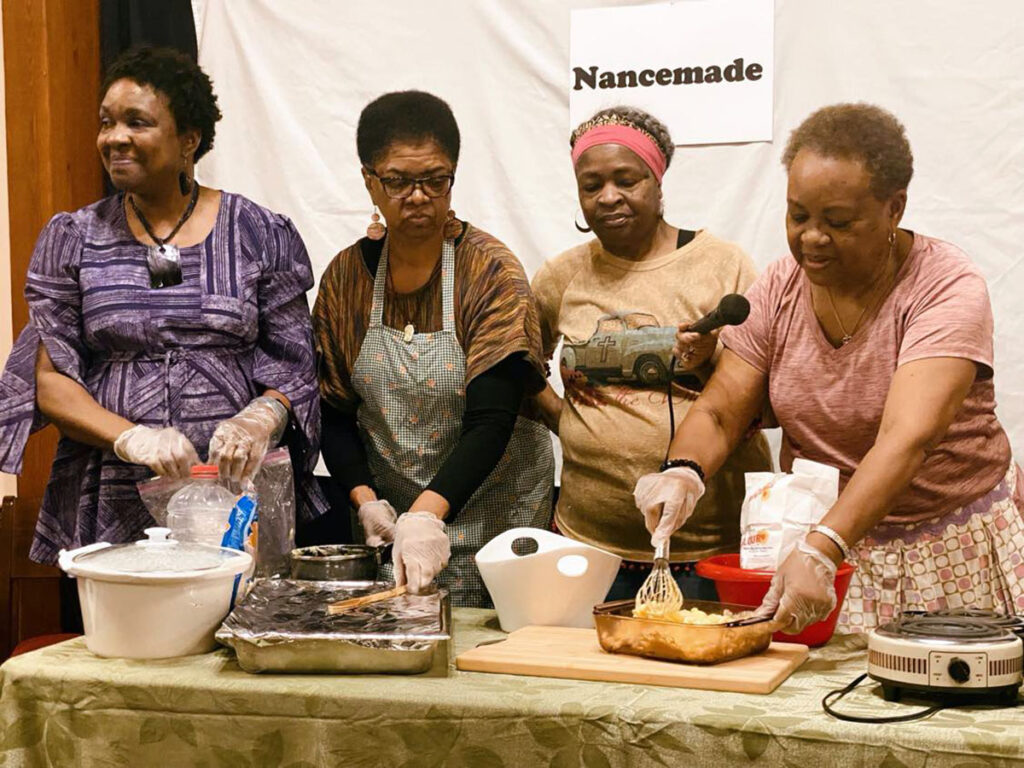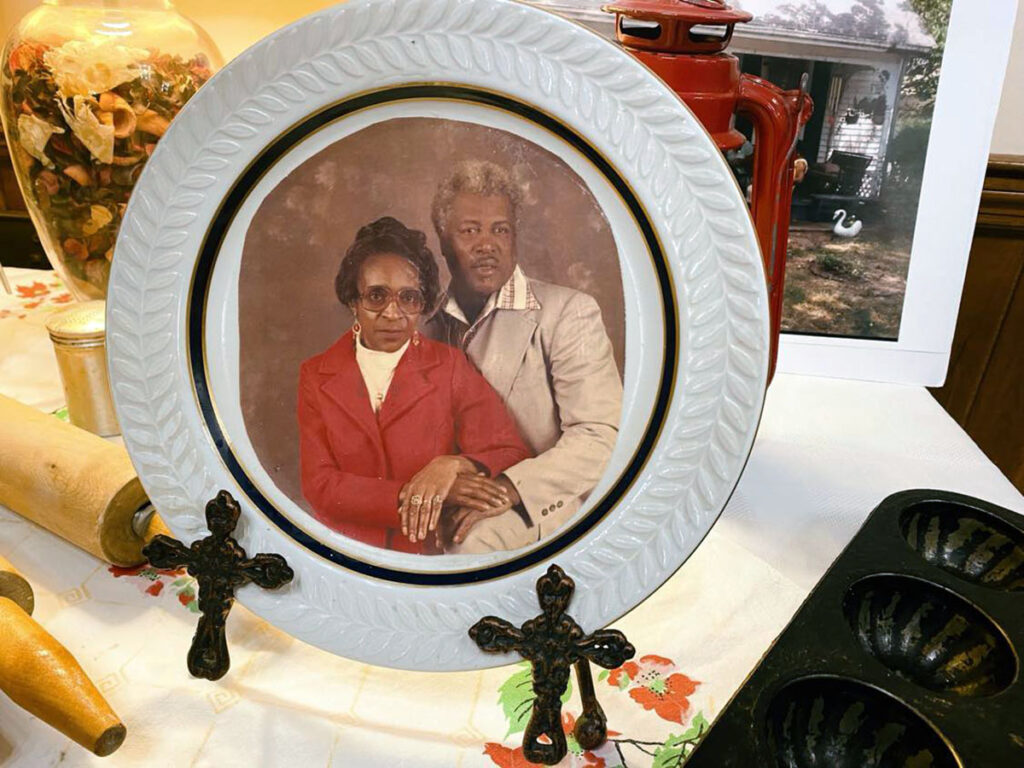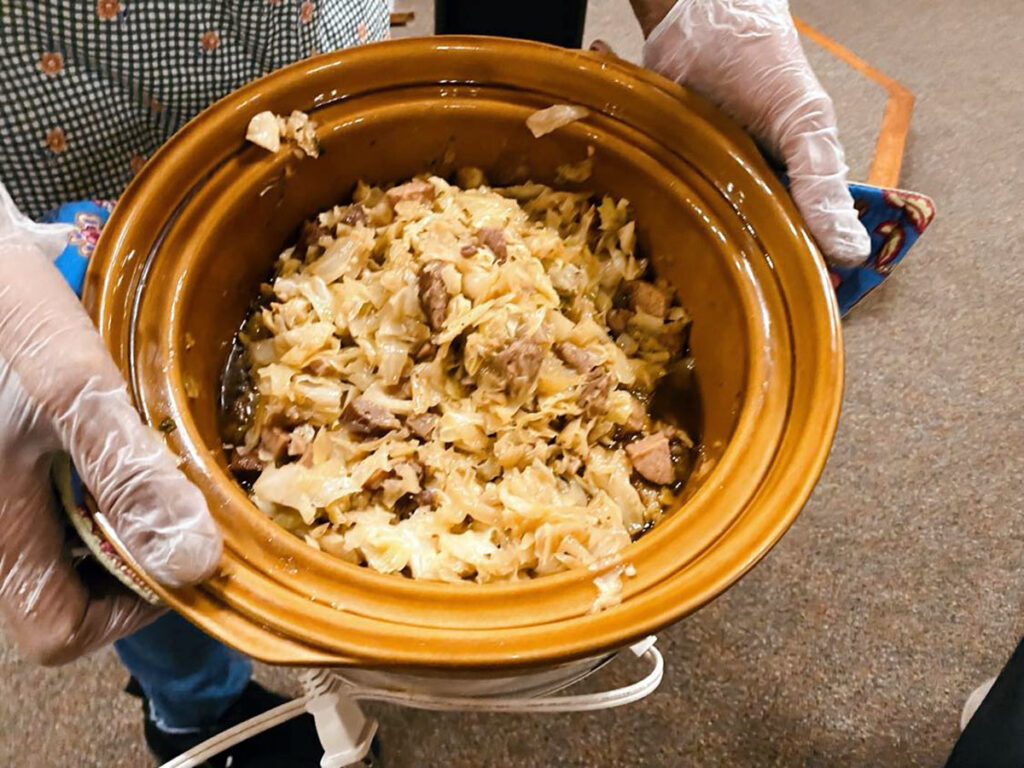Thursday evening as the Nance siblings packed up their utensils and pantry staples following a cooking demonstration for more than 75 people at Grace Episcopal Church, I caught Paulette Robinson just before she left All Saints Hall and asked her to comment on her family’s cuisine.
“What is soul food?” I asked. “What makes soul food different from country food or Southern dishes?”

For the fourth or fifth or sixth time that evening, Robinson started to tear up. It had been a heartfelt night for her family to see a diverse crowd of Hopkinsville people captivated by her family’s traditions. So many people responded to plans for “The Supper Club: Soul Food,” the organizers had to make a last-minute switch and moved the event from the Pennyroyal Area Museum to Grace Episcopal Church where they could accommodate more people.
Robinson couldn’t help but recall a time when the two sides of Hopkinsville wouldn’t have gathered like they did Thursday evening. She and four of her siblings — children of the late Charles “Bootjack” and Sarah Nance — entertained and educated the audience about their favorite dishes.
- RELATED: Tales from the Thanksgiving table
- RELATED: Second Helping: More holiday food and Hopkinsville stories
They demonstrated and shared several foods, including hot water cornbread, fried cabbage, turnip greens, macaroni and cheese, white beans and chicken and dumplings. Almost every dish was inspired by something they learned in their mother’s kitchen.

I don’t believe anyone in the room could have missed the obvious affection among the Nance children, now in their 50s, 60s and 70s, and wondered how their parents nurtured that bond in a family of 10 children.
Which brings us back to the question I had about soul food.
Here’s what Robinson said:
“First you’ve got to feel from your heart, and then it has to be incorporated inside of you from so many — your grand momma, your great-grand momma — and all those tastes and all those things have to be incorporated together — that’s the soul of it.
- SUBSCRIBE: Sign up for our newsletters
“And then there’s the love that comes with it. Mother used to cook with so much love all the time. And that’s what it is.
“We had to learn how to love ourselves as Black people. … and that’s where soul comes in. We had to learn how to love our souls because we weren’t taught to love ourselves — because back then Black people were nothing. Slaves were nothing.
“So the soul is the inside that we brought with us.
“What was outside was inside, and what was inside was all these spices and flavors and stuff.”
Robinson described how enslaved people took ingredients that others cast off and created their own ways with that food.
“They were able to incorporate the bits and pieces that others didn’t want,” she said.
You can see several of the Nance family recipes here.

Jennifer P. Brown is co-founder, publisher and editor of Hoptown Chronicle. You can reach her at editor@hoptownchronicle.org. Brown was a reporter and editor at the Kentucky New Era, where she worked for 30 years. She is a co-chair of the national advisory board to the Institute for Rural Journalism and Community Issues, governing board past president for the Kentucky Historical Society, and co-founder of the Kentucky Open Government Coalition. She serves on the Hopkinsville History Foundation's board.





